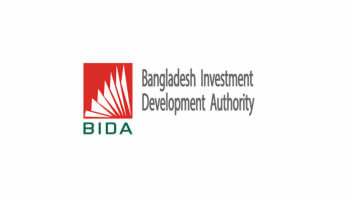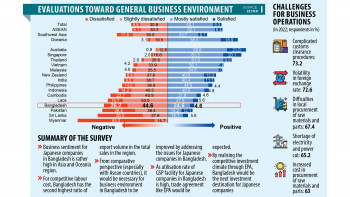Are we teaching business the right way?

In bustling Dhaka, businesses reflect the sheer resilience and ambition of the Bangladeshi spirit. There's an inherent zeal for entrepreneurship that can be seen in multinational giants, local startups, and even small-scale vendors. Our education system's commitment to cultivating students' business acumen echoes this enthusiasm. However, a pertinent question emerges as our business landscape evolves: are we merely churning out business graduates, without producing responsible managers?
First, we must recognise the inherent purpose of business education. The traditional mindset might suggest that its core goal is to instil the principles of maximising profit and optimising growth. But in the age of globalisation, characterised by a deeply interconnected world, this perspective is rapidly becoming obsolete.
Today's business ecosystem isn't confined to transactions and profitability; it's an intricate web involving socioeconomic dynamics, cultural nuances, and ethical considerations. Herein lies the conundrum. Our current curriculum, although robust, seems narrowly focused on profit-centric paradigms while overlooking the broader spectrum of responsible management.
The answer to why we need ethical business graduates lies in the history of numerous corporate debacles. Consider the global financial meltdown of 2008, which arose from unethical banking practices. Or closer to home, the tragic Rana Plaza collapse in 2013, a devastating consequence of the neglect of safety and ethical standards. Such incidents underline the dire need for ethical considerations in business practices.
A purely profit-driven approach can lead to detrimental shortcuts, disregard for safety standards, and even environmental degradation. With its juxtaposition of booming economic prospects and pressing challenges like socioeconomic disparities and environmental vulnerabilities, Bangladesh requires leaders who will handle complexities with ethical precision.
As industries grapple with complex challenges ranging from ethical considerations to sustainable practices, there's a paramount need for leaders who aren't just proficient in management, but have traits that are deeply anchored in the Principles for Responsible Management Education (PRME).
Initiated by the UN Global Compact in 2007, with 800 volunteer signatories, PRME isn't just another programme; it's a global movement with the objective to revolutionise management education, research, and thought leadership. By offering the PRME framework, it nurtures learning communities and heightens awareness, especially regarding the UN's Sustainable Development Goals.
A responsible manager represents more than just a title. They embody an ethically grounded, socially conscious, and economically astute professional. Such managers are cornerstones of sustainable business ecosystems, and should be adept at weighing profitability against societal impact, consistently choosing the path that ensures holistic growth.
Integrating responsible management into the academic curriculum involves reshaping the very ethos of business education. Courses on business ethics, corporate social responsibility, and sustainability should be foundational, not optional. Workshops, internships, and field visits emphasising ethical practices should be woven into the academic fabric. For instance, a marketing course could delve deep into ethical advertising practices, ensuring students recognise the fine line between persuasive advertising and misleading claims.
Bangladesh's demographic dividend, burgeoning tech industry, and strategic position in South Asia place us in a unique position. By pioneering a shift towards ethical business education, we can serve as a model for the entire region. Bangladeshi business graduates would then be assets not just to local industries, but to global corporations.
In an era where every decision in the business world has cascading effects, initiatives like PRME are not just desirable; they are imperative. In the face of global challenges like climate change, economic disparities, and socio-political upheavals, the role of businesses and, by extension, business leaders becomes paramount. As we stand at this crossroads, our educational institutions have a golden opportunity, and indeed a responsibility, to recalibrate the compass of business education. The six pillars of PRME encompass purpose, values, method, research, partnership, and dialogue. While many of our business schools excel in these areas, there are opportunities for further growth and enhancement in some of them.
We must produce graduates who are not only business-savvy but also ethically grounded. Their decisions, influenced by an education that prioritises societal well-being as much as profitability, will shape the future of Bangladesh. The journey from business graduates to responsible managers is both a challenge and an opportunity. Let's seize it.
Quazi Tafsirul Islam is senior lecturer at the School of Business & Economics of North South University.
Views expressed in this article are the author's own.
Follow The Daily Star Opinion on Facebook for the latest opinions, commentaries and analyses by experts and professionals. To contribute your article or letter to The Daily Star Opinion, see our guidelines for submission.

 For all latest news, follow The Daily Star's Google News channel.
For all latest news, follow The Daily Star's Google News channel. 









Comments